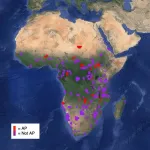(Press-News.org) CAMBRIDGE, MA – Organizations are increasingly utilizing machine-learning models to allocate scarce resources or opportunities. For instance, such models can help companies screen resumes to choose job interview candidates or aid hospitals in ranking kidney transplant patients based on their likelihood of survival.
When deploying a model, users typically strive to ensure its predictions are fair by reducing bias. This often involves techniques like adjusting the features a model uses to make decisions or calibrating the scores it generates.
However, researchers from MIT and Northeastern University argue that these fairness methods are not sufficient to address structural injustices and inherent uncertainties. In a new paper, they show how randomizing a model’s decisions in a structured way can improve fairness in certain situations.
For example, if multiple companies use the same machine-learning model to rank job interview candidates deterministically — without any randomization — then one deserving individual could be the bottom-ranked candidate for every job, perhaps due to how the model weighs answers provided in an online form. Introducing randomization into a model’s decisions could prevent one worthy person or group from always being denied a scarce resource, like a job interview.
Through their analysis, the researchers found that randomization can be especially beneficial when a model’s decisions involve uncertainty or when the same group consistently receives negative decisions.
They present a framework one could use to introduce a specific amount of randomization into a model’s decisions by allocating resources through a weighted lottery. This method, which an individual can tailor to fit their situation, can improve fairness without hurting the efficiency or accuracy of a model.
“Even if you could make fair predictions, should you be deciding these social allocations of scarce resources or opportunities strictly off scores or rankings? As things scale, and we see more and more opportunities being decided by these algorithms, the inherent uncertainties in these scores can be amplified. We show that fairness may require some sort of randomization,” says Shomik Jain, a graduate student in the Institute for Data, Systems, and Society (IDSS) and lead author of the paper.
Jain is joined on the paper by Kathleen Creel, assistant professor of philosophy and computer science at Northeastern University; and senior author Ashia Wilson, the Lister Brothers Career Development Professor in the Department of Electrical Engineering and Computer Science and a principal investigator in the Laboratory for Information and Decision Systems (LIDS). The research will be presented at the International Conference on Machine Learning.
Considering claims
This work builds off a previous paper in which the researchers explored harms that can occur when one uses deterministic systems at scale. They found that using a machine-learning model to deterministically allocate resources can amplify inequalities that exist in training data, which can reinforce bias and systemic inequality.
“Randomization is a very useful concept in statistics, and to our delight, satisfies the fairness demands coming from both a systemic and individual point of view,” Wilson says.
In this paper, they explored the question of when randomization can improve fairness. They framed their analysis around the ideas of philosopher John Broome, who wrote about the value of using lotteries to award scarce resources in a way that honors all claims of individuals.
A person’s claim to a scarce resource, like a kidney transplant, can stem from merit, deservingness, or need. For instance, everyone has a right to life, and their claims on a kidney transplant may stem from that right, Wilson explains.
“When you acknowledge that people have different claims to these scarce resources, fairness is going to require that we respect all claims of individuals. If we always give someone with a stronger claim the resource, is that fair?” Jain says.
That sort of deterministic allocation could cause systemic exclusion or exacerbate patterned inequality, which occurs when receiving one allocation increases an individual’s likelihood of receiving future allocations. In addition, machine-learning models can make mistakes, and a deterministic approach could cause the same mistake to be repeated.
Randomization can overcome these problems, but that doesn’t mean all decisions a model makes should be randomized equally.
Structured randomization
The researchers use a weighted lottery to adjust the level of randomization based on the amount of uncertainty involved in the model’s decision-making. A decision that is less certain should incorporate more randomization.
“In kidney allocation, usually the planning is around projected lifespan, and that is deeply uncertain. If two patients are only five years apart, it becomes a lot harder to measure. We want to leverage that level of uncertainty to tailor the randomization,” Wilson says.
The researchers used statistical uncertainty quantification methods to determine how much randomization is needed in different situations. They show that calibrated randomization can lead to fairer outcomes for individuals without significantly affecting the utility, or effectiveness, of the model.
“There is a balance to be had between overall utility and respecting the rights of the individuals who are receiving a scarce resource, but oftentimes the tradeoff is relatively small,” says Wilson.
However, the researchers emphasize there are situations where randomizing decisions would not improve fairness and could harm individuals, such as in criminal justice contexts.
But there could be other areas where randomization can improve fairness, such as college admissions, and the researchers plan to study other use-cases in future work. They also want to explore how randomization can affect other factors, such as competition or prices, and how it could be used to improve the robustness of machine-learning models.
“We are hoping our paper is a first move toward illustrating that there might be a benefit to randomization. We are offering randomization as a tool. How much you are going to want to do it is going to be up to all the stakeholders in the allocation to decide. And, of course, how they decide is another research question all together,” says Wilson.
END
Study: When allocating scarce resources with AI, randomization can improve fairness
Introducing structured randomization into decisions based on machine-learning model predictions can address inherent uncertainties while maintaining efficiency.
2024-07-26
ELSE PRESS RELEASES FROM THIS DATE:
Wencai Liu earns 2024 IUPAP Early Career Scientist Prize in Mathematical Physics
2024-07-26
Dr. Wencai Liu, an associate professor of mathematics at Texas A&M University, has been selected to receive the 2024 International Union of Pure and Applied Physics (IUPAP) Early Career Scientist Prize in Mathematical Physics in recognition of his exceptional achievements and future potential in mathematical physics.
Liu is one of three scientists worldwide honored with the prize, one of 19 celebrating the contributions of early career physicists within the subfields of each commission comprising the IUPAP, which was founded in 1976 to promote research in mathematical physics. Each prize consists of a certificate, medal and a monetary award.
Liu ...
Outsourcing conservation in Africa
2024-07-26
(Santa Barbara, Calif.) — There’s an experiment going on in conservation in Africa. With biodiversity imperiled, and nations facing financial and political crises, some governments are transferring the management of protected areas to private, non-governmental organizations (NGOs).
This strategy seems to be paying off. NGOs can better manage corruption, making them attractive to large donors like the World Bank and European Union. Their capital can fund personnel, research and technology to more effectively manage protected areas and species. While these management changes appear ...
Study finds big disparities in stroke services across the US
2024-07-26
FOR IMMEDIATE RELEASE
Media Contact: Elizabeth.Fernandez@ucsf.edu, (415) 502-6397
Subscribe to UCSF News
Study Finds Big Disparities in Stroke Services Across the U.S.
Low-income communities are up to 42% less likely to obtain stroke center certification.
Hospitals in poor communities are significantly less likely to obtain certification for stroke services, which makes them unable to provide urgent, lifesaving treatment, UC San Francisco researchers are reporting in a 14-year study of the nation’s hospitals.
By ...
Media Tip Sheet: Urban Ecology at #ESA2024
2024-07-26
Interest in urban ecology is growing rapidly as cities expand and the need to understand urban ecosystems becomes more pressing. The Ecological Society of America’s upcoming Annual Meeting in Long Beach, Calif., Aug. 4–9, features a diverse array of talks and posters dedicated to this dynamic field.
Researchers from around the world will present their latest findings on how urban environments impact biodiversity, ecosystem services and human well-being. In addition to a Symposium devoted to the urban ecology of Greater Los Angeles, dozens of talks and posters will offer valuable insights ...
Michigan Plasma prize honors University of Illinois professor
2024-07-26
July 26, 2024
Contact: Kate McAlpine, 734-647-7087, kmca@umich.edu; Nicole Casal Moore, 734-709-1651, ncmoore@umich.edu; Phillip Kisubika, 217-244-7448, pkk18@illinois.edu
Image
ANN ARBOR—He has honed the power of plasma to advance semiconductor processing, high-quality thin films for magnetic hard drives, and fusion energy. For these and other accomplishments, University of Illinois Professor David Neil Ruzic has been chosen to receive the 2024 University of Michigan Prize for Excellence in Plasma Science and Engineering.
Ruzic is the Abel Bliss Professor of Engineering in ...
Atomic 'GPS' elucidates movement during ultrafast material transitions
2024-07-26
UPTON, N.Y. — Scientists from the U.S. Department of Energy’s (DOE) Brookhaven National Laboratory have created the first-ever atomic movies showing how atoms rearrange locally within a quantum material as it transitions from an insulator to a metal. With the help of these movies, the researchers discovered a new material phase that settles a yearslong scientific debate and could facilitate the design of new transitioning materials with commercial applications.
This research, recently published in Nature Materials, marks a methodological achievement; the researchers demonstrated that a materials characterization technique called atomic pair distribution ...
UMBC scientists work to build “wind-up” sensors
2024-07-26
An international team of scientists, including two researchers who now work in the Center for Advanced Sensor Technology (CAST) at UMBC, has shown that twisted carbon nanotubes can store three times more energy per unit mass than advanced lithium-ion batteries. The finding may advance carbon nanotubes as a promising solution for storing energy in devices that need to be lightweight, compact, and safe, such as medical implants and sensors. The research was published recently in the journal Nature Nanotechnology.
Sanjeev Kumar Ujjain, from CAST, was a lead researcher on the work. He started the project while at Shinshu University, in Nagano, Japan, and continued after arriving ...
Researchers receive McKnight award to study the evolution of deadly brain cancer
2024-07-26
Scientist Dr. Aparna Bhaduri, assistant professor of medicine and biological chemistry, and neurosurgeon Dr. Kunal Patel, assistant professor of neurosurgery, both part of the UCLA Health Jonsson Comprehensive Cancer Center, have received the 2024 Neurobiology of Brain Disorders Award from the McKnight Endowment Fund for Neuroscience, which supports innovative research by U.S. scientists who are studying neurological and psychiatric diseases.
The award, $300,000 over the next three years, supports their efforts in gaining a deeper understanding of the microenvironment's role in shaping human glioblastoma, an aggressive type of brain cancer that is fast growing and difficult ...
Heather Dyer selected as the 2024 ESA Regional Policy Award Winner
2024-07-26
The Ecological Society of America (ESA) will present its 17th annual Regional Policy Award to Heather Dyer, Chief Executive Officer of the San Bernardino Valley Municipal Water District, Sunday, Aug. 4, 5:00 p.m. PDT, during the ESA Annual Meeting Opening Plenary. The ESA annual award recognizes an elected or appointed local policymaker whose record reflects the use of ecological science to inform policy decisions.
“ESA is honored to recognize Dyer,” said ESA President Shahid Naeem. “It’s rare for a biologist with ecosystems expertise to transition from technical science work to executive ...
New study disputes Hunga Tonga volcano’s role in 2023-24 global warm-up
2024-07-26
New research from a collaborative team featuring Texas A&M University atmospheric scientist Dr. Andrew Dessler is exploring the climate impact of the 2022 Hunga Tonga volcano eruption and challenging existing assumptions about its effects in the process.
The remarkable two-day event, which occurred in mid-January 2022, injected vast amounts of volcanic aerosols and water vapor into the atmosphere. Historically, large volcanic eruptions like Tambora in 1815 and Mt. Pinatubo in 1991 have led to significant cooling effects on the global climate by blocking sunlight with their aerosols. ...
LAST 30 PRESS RELEASES:
The Lancet: First-ever in-utero stem cell therapy for fetal spina bifida repair is safe, study finds
Nanoplastics can interact with Salmonella to affect food safety, study shows
Eric Moore, M.D., elected to Mayo Clinic Board of Trustees
NYU named “research powerhouse” in new analysis
New polymer materials may offer breakthrough solution for hard-to-remove PFAS in water
Biochar can either curb or boost greenhouse gas emissions depending on soil conditions, new study finds
Nanobiochar emerges as a next generation solution for cleaner water, healthier soils, and resilient ecosystems
Study finds more parents saying ‘No’ to vitamin K, putting babies’ brains at risk
Scientists develop new gut health measure that tracks disease
Rice gene discovery could cut fertiliser use while protecting yields
Jumping ‘DNA parasites’ linked to early stages of tumour formation
Ultra-sensitive CAR T cells provide potential strategy to treat solid tumors
Early Neanderthal-Human interbreeding was strongly sex biased
North American bird declines are widespread and accelerating in agricultural hotspots
Researchers recommend strategies for improved genetic privacy legislation
How birds achieve sweet success
More sensitive cell therapy may be a HIT against solid cancers
Scientists map how aging reshapes cells across the entire mammalian body
Hotspots of accelerated bird decline linked to agricultural activity
How ancient attraction shaped the human genome
NJIT faculty named Senior Members of the National Academy of Inventors
App aids substance use recovery in vulnerable populations
College students nationwide received lifesaving education on sudden cardiac death
Oak Ridge National Laboratory launches the Next-Generation Data Centers Institute
Improved short-term sea level change predictions with better AI training
UAlbany researchers develop new laser technique to test mRNA-based therapeutics
New water-treatment system removes nitrogen, phosphorus from farm tile drainage
Major Canadian study finds strong link between cannabis, anxiety and depression
New discovery of younger Ediacaran biota
Lymphovenous bypass: Potential surgical treatment for Alzheimer's disease?
[Press-News.org] Study: When allocating scarce resources with AI, randomization can improve fairnessIntroducing structured randomization into decisions based on machine-learning model predictions can address inherent uncertainties while maintaining efficiency.




